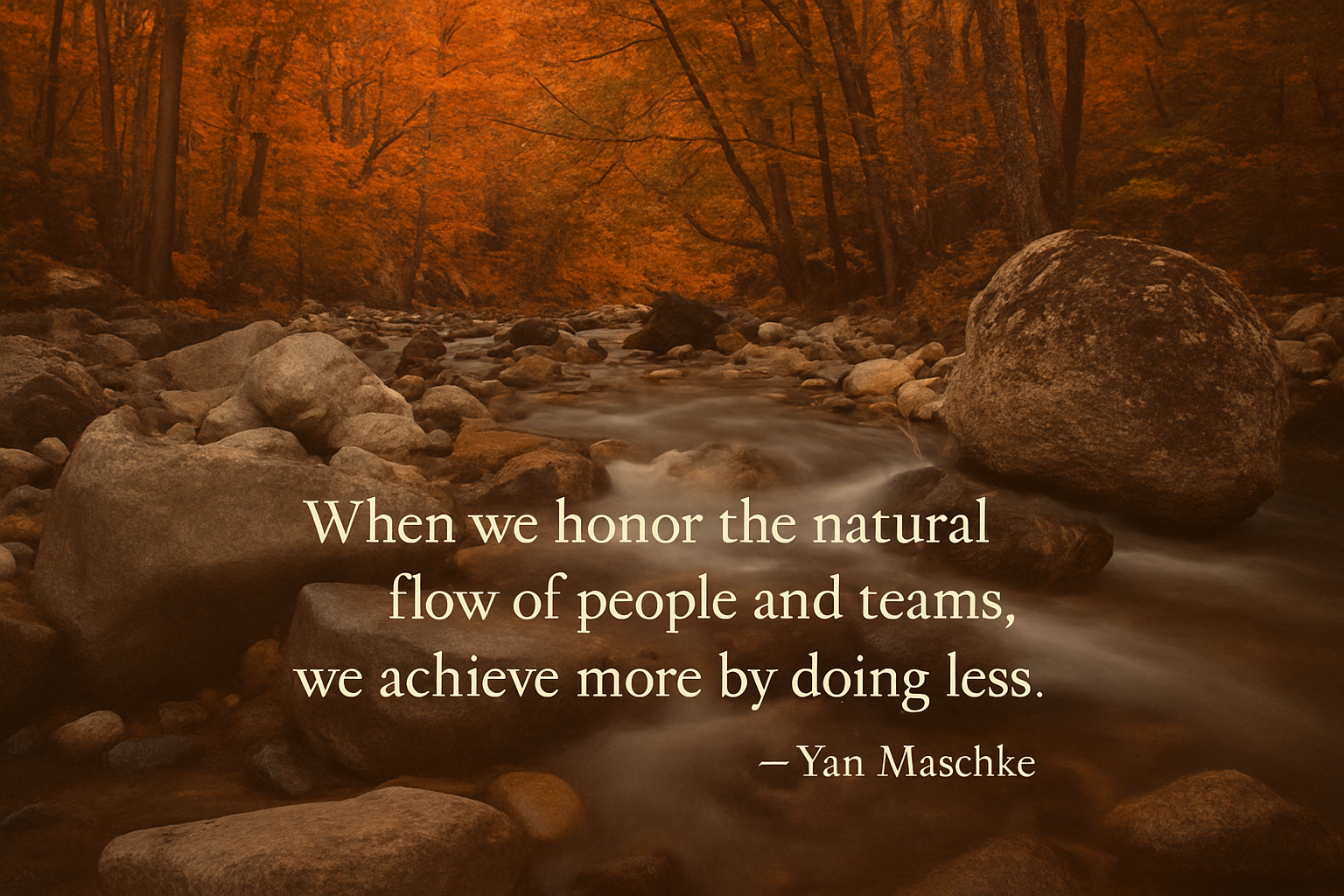The Way of Non-Doing
“Striving” and “persevering through struggles” has been the primary mode of operation for much of my life.
Daoist philosophy offers something very different: The Way — and the practice of Non-Doing.
It’s a nuanced concept that can feel elusive in Western cultures. Even though I grew up in the East, it still took me many years to appreciate what it really means.
Here’s how I’ve come to understand it.
Honoring “The Way” Through Patterns and Flow
One way to honor The Way is to pay attention to the natural flow of things — to recognize the patterns that have been guiding life long before we arrived.
Every year has its four seasons.
Every month, the moon moves toward fullness.
Every day, the world wakes and rests.
Just as the body naturally rises with the morning and unwinds at night, it makes sense to plant in spring and harvest in autumn. When we follow these natural cycles, we tap into an intelligence larger than our own effort.
To honor The Way is to work with the current, not against it. It’s working smart — achieving greater impact with less friction. This is the essence of “Non-Doing.”
When we become skilled at observing patterns over time, intuition begins to form. We can sense what might be coming next. We gain clarity on when to step in and how to intervene — without force — for the best outcome.
Teams also move through predictable development cycles: forming, storming, norming, performing.
A leader who understands this rhythm can intentionally accelerate development — not by pushing, but by creating the space and conditions for effective storming and efficient norming to take place. This is team coaching at its best.
Honoring “The Way” Through Others
Another way to honor The Way is to inspire and bring out the best in others, rather than imposing our own way onto them.
Leadership is achieving meaningful results with and through people. Sustained greatness is always a collective achievement. Personal brute force can only take us so far.
Recently, I facilitated a leadership conference for a client’s top 70 leaders.
The team leader didn’t dominate the agenda, push his ideas, or try to control the outcome. Instead, he modeled asking for help, celebrated contributions, and empowered the group to shape the plan for bringing their shared vision to life.
One could say he practiced “Non-Doing.”
But the results were significant — because he respected the natural way of achieving great outcomes through people. He honored The Way.
Reflection
It’s autumn here in North America — a time for harvest and for looking inward.
What reflections do you have on honoring The Way through Non-Doing?
How might a dose of this practice shift something meaningful in your life or leadership?


